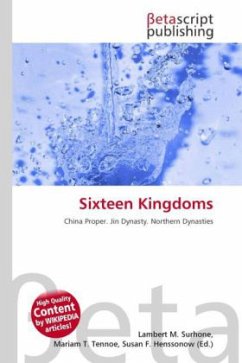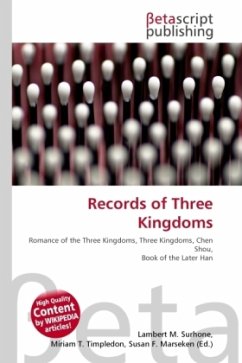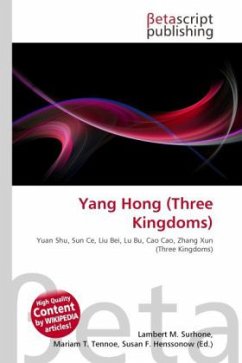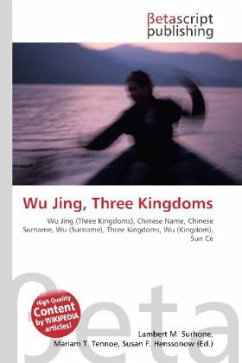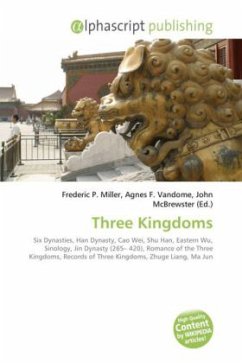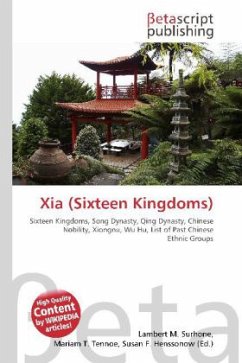
Xia (Sixteen Kingdoms)
Versandkostenfrei!
Versandfertig in 6-10 Tagen
23,99 €
inkl. MwSt.

PAYBACK Punkte
12 °P sammeln!
Please note that the content of this book primarily consists of articles available from Wikipedia or other free sources online. Tiefu was a pre-state Xiongnu tribe during the era of Sixteen Kingdoms in China. Its chieftain Liu Bobo established the state of Xia in 407 and changed his family name into Helian. Although the Xia only lasted up to 431, its capital Tongwan (in Ordos) was certainly a heavily fortified and state-of-the-art city that would serve as a frontier garrison until the Song Dynasty. Its ruins were discovered during the Qing Dynasty and can still be seen in present-day Inner Mon...
Please note that the content of this book primarily consists of articles available from Wikipedia or other free sources online. Tiefu was a pre-state Xiongnu tribe during the era of Sixteen Kingdoms in China. Its chieftain Liu Bobo established the state of Xia in 407 and changed his family name into Helian. Although the Xia only lasted up to 431, its capital Tongwan (in Ordos) was certainly a heavily fortified and state-of-the-art city that would serve as a frontier garrison until the Song Dynasty. Its ruins were discovered during the Qing Dynasty and can still be seen in present-day Inner Mongolia. The Wei Shu also records that Liu Kuren''s tribe, the Dugu, were descended from the Xiongnu. Yao Weiyuan suggested in the past that ''Dugu'' was an alternate form of ''Tuge'' the Xiongnu aristocratic clan that had adopted the surname of Liu, members of which also ruled the Former Zhao state. This writer further suggests that ''Tuge'' is an alternate form of ''Tuhe'', which is the branch of the Xianbei from which the Murong were descended. The Liu (Dugu) were also known as Tiefu, a term which meant that they had Xiongnu fathers and Xianbei mothers. Thus it is reasonable to say that the Dugu were at least half Xianbei.



